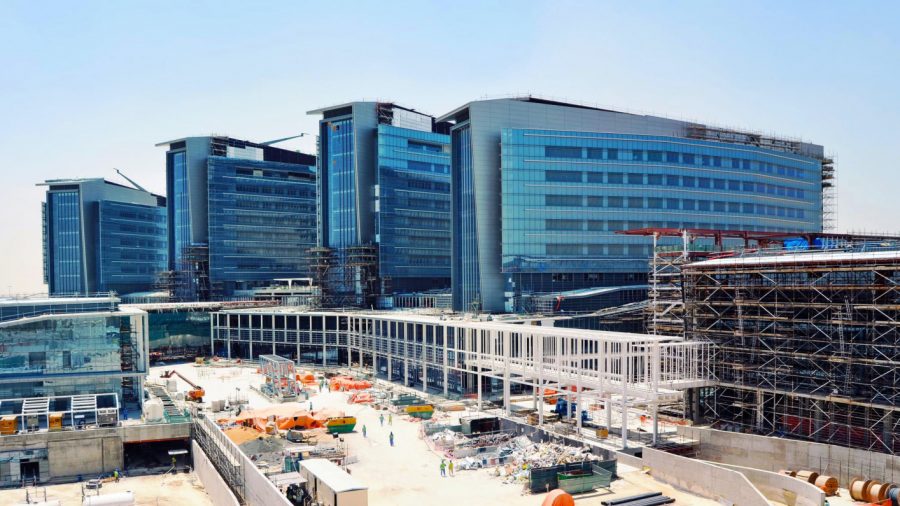A mother from the United Arab Emirates (UAE) has revealed her experience of waking up from a coma in June 2018, nearly 30 years after suffering a major car accident.
Munira Abdulla, now 59, was involved in a car accident with a school bus back in 1991. The trauma left her with brain injuries so severe she fell into a comatose state.
However, nearly one year ago she regained consciousness in a German hospital room, surprising doctors who had basically lost hope she would ever recover from the crash.
Abdulla’s family members spoke for the first time about their ordeal and what they call a miracle that she is already able to answer questions and recite religious prayers.
“I never gave up on her because I always had a feeling that one day she will wake up,” Abdulla’s son Omar Webair, 32, told The National. “I was four when the accident happened, and we used to live in Al Ain (106 miles east of Abu Dhabi). That day, there was no bus at the school to take me home.”
#Emirati #woman wakes up from #coma after almost 30 years https://t.co/MSZSaZTlVi via @TheNationalUAE
— Haneen Dajani (@Haneen_Dajani) April 22, 2019
It all started in 1991 when the woman, then 32, collected Webair from school and headed back home at about 4 p.m. local time.
On the way back, their car crashed into a school bus. Moments before the vehicles collided, Abdulla shielded Webair from the impact, sparing him from the brunt of the force and leaving him with just a bruise to the head.
“My mother was sitting with me in the back seat. When she saw the crash coming, she hugged me to protect me from the blow,” Webair said. “There were no mobile phones and we could not call an ambulance. She was left like that for hours.”
The woman was transported to a local hospital and then a London medical institute in the United Kingdom, suffering from severe brain trauma and unconsciousness. Despite their best efforts, doctors could not wake her.
Abdulla was sent back to a hospital in Al Ain where she stayed for the next few years. She was fed by tube and had physiotherapy to minimize muscle deterioration. Doctors did not think she would ever open her eyes again.
The coma did not stop Webair from walking several miles to visit and sit with his mother for many hours. He said that after a while, he was able to tell from the expression on Abdulla’s face and her body language whether she was in pain.
“To me, she was like gold. The more time passed by, the more valuable she became,” Webair said.
As he grew older, visiting Abdulla became more challenging, especially when he started to work. He still managed to find time to spend time with his mother.
“I never regretted it. I believe that, because of my support for her, God saved me from bigger troubles,” he said.
While Abdulla was in a coma, she spent several years in different hospitals. She was forced to move between medical institutions across the UAE due to health insurance limitations.
In April 2017, the Crown Prince Court heard about Abdulla’s situation and granted the family money for a comprehensive programme in Germany.
Webair was overwhelmed by the court’s generosity.
“We did not even ask for the grant. I am grateful to Sheikh Mohamed [bin Zayed, Crown Prince of Abu Dhabi] for that,” he said. “Our leaders are always supportive in such situations and we are thankful for it.”
When Abdulla moved to Schoen Clinic in Bad Aibling, 39 miles southeast of Munich, her son noticed she was starting to wake up.
“I told the doctors I was expecting her to start talking again and they told me ‘you are running wild with your imagination. We are only doing rehabilitation to fix her quality of life,’” he said.
The following June, Abdulla started to move while Webair was in the middle of a heated argument.
“There was a misunderstanding in the hospital room and she sensed I was at risk, which caused her a shock,” he said. “She was making strange sounds and I kept calling the doctors to examine her. They said everything was normal.”
Three days later Webair, received a phone call from the person who he least expected.
“I woke up to the sound of someone calling my name. It was her. She was calling my name. I was flying with joy,” he said. “For years I have dreamt of this moment, and my name was the first word she said.”
Emirati woman wakes up after 27 years in a coma https://t.co/ZABSQEjvWv
— The Times of Israel (@TimesofIsrael) April 24, 2019
Abdulla is now able to have a conversation with her family members.
“Now she can tell us where she is feeling pain, and I can have conversations with her if she is interested in the topic,” Webair said. “She sometimes wakes me up to recite prayers with her. She would give me the topic and once I start with the prayer she continues the lines.”
Abdulla is still recovering at Mafraq Hospital in Abu Dhabi.
“[She is] currently able to communicate in a very reasonable manner, especially in familiar situations,” a hospital spokesperson said.
Webair is thrilled with being able to speak with his mother again and urges others who have comatose loved ones not to give up hope.
“All those years, the doctors told me she was a hopeless case and that there was no point of the treatment I was seeking for her but, whenever in doubt, I put myself in her place and did whatever I could to improve her condition,” he said. “I shared her story to tell people not to lose hope on their loved ones. Don’t consider them dead when they are in such a state.”

